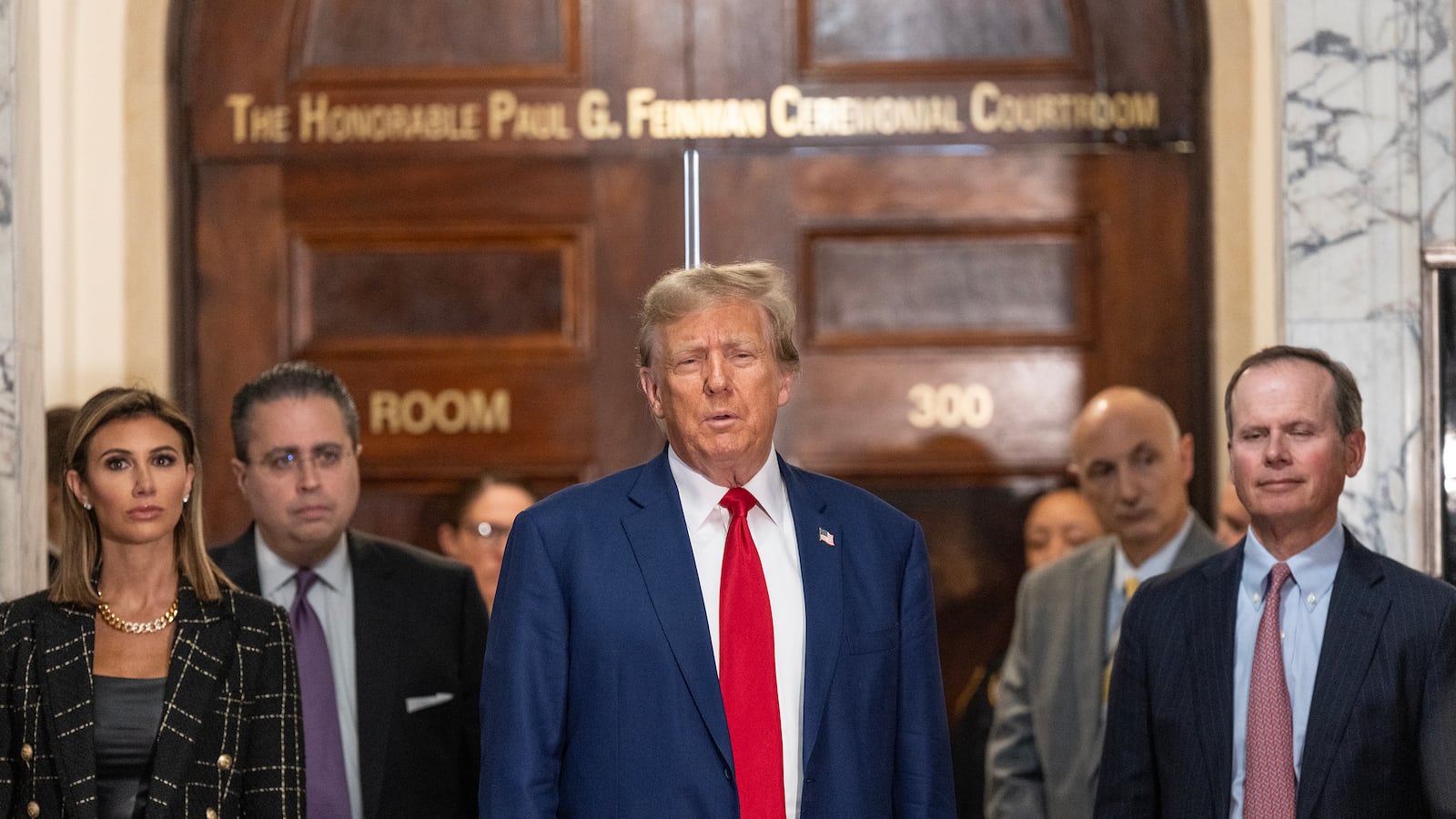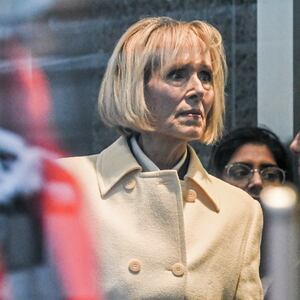Donald Trump's second rape defamation trial got off to a quick start on Tuesday, with the selection of a jury that cut across New York City’s unique and diverse population.
On the panel that will decide if Trump owes even more money to journalist E. Jean Carroll for using his powerful podium at the White House to deny her claim that he raped her decades ago will be a retired subway transit worker, a retired German teacher, a Spaniard with a doctorate, and several people who said they rely on social media to get their news.
But perhaps more notable than those who made it onto the jury were the two New Yorkers who didn't make the cut: an older man and woman who declared themselves Trump supporters and asserted they still believed in the fiction that Trump won the 2020 election.
The former president, who sat visibly uncomfortable at the defense table just hours after winning the Iowa Caucuses, twice turned his head during the morning session to peek at the two locals who expressed sympathy for him and his MAGA politics.
A panel of nine will now spend the next few days deciding how much money, if any at all, Trump owes Carroll. Carroll already proved during a first trial last spring, in the minds of the jury, that Trump sexually assaulted her in the mid-1990s. This second trial seeks to punish Trump for defaming her while he was in office by lying about the assault.
While Trump mostly remained motionless during jury selection—leaning forward with his hands folded over each other for much of the morning—he furiously shook his head when the judge told jurors that the former president did indeed sexually assault Carroll and that this trial will only decide whether the former president should pay her for trashing her reputation.
Trump still denies that the sexual assault ever happened, despite having already been hit with a $5 million verdict in the original case.
The morning got off to a contentious start when Trump lawyer Alina Habba complained about the judge's insistence that the trial proceed even though the billionaire tycoon’s mother-in-law died last week and her funeral is scheduled for Thursday. In court papers, the judge has pointed out that Trump continues to travel across the country for campaign events supporting his 2024 presidential election bid.
Trump was flanked by his political confidant and legal adviser, Boris Epshteyn, though the attorney is not actively representing him in this case.
U.S. District Judge Lewis Kaplan appeared annoyed at the many last-minute attempts by the Trump legal team to delay the trial, castigating defense attorneys for repeating requests he had previously denied. Among them was a demand that he hold off on the trial due to two separate appeals in play—including a longshot legal theory that Trump could somehow hide behind the presidential seal and exercise total immunity for his vindictive insults. Kaplan briskly shot down that defense, and the judge warned lawyers to drop the matter.
Both sides will now present opening arguments this afternoon, and the trial could end by Thursday. Although Trump was in the courtroom, his lawyers said they had not decided whether the former president would testify at his own trial. Trump notably ghosted the first trial last year, forcing his team to rely solely on a deposition that arguably tanked his case.
The trial now begins with nine people who will determine whether Trump owes additional millions for using his stature as president to cast doubt on Carroll’s accusations. Nearly every juror acknowledged hearing about the former president’s many criminal indictments, as well as this case. But all of them affirmed under oath that they could put any feelings aside to judge him fairly and rely solely on the evidence presented in court.
The panel includes:
- A 60-year-old married man who lives in the Bronx with his wife and spent decades as a New York City transit worker maintaining subway tracks. He said he mostly watches the local Channel 7 evening news.
- An older, married German woman who spent years teaching at the city’s German international school and mostly avoids news, preferring to study American history.
- A 26-year-old property manager who relies on Facebook and Instagram to stay informed.
- A 58-year-old man who lives in the city suburbs of Westchester and works in cybersecurity sales while mostly reading The New York Times.
- A 42-year-old man from Barcelona who is married to a violinist and reads news from his home country.
- A 46-year-old emergency medicine physician who is married to a lawyer in Westchester and reads The New York Times and Wall Street Journal.
- A 37-year-old who left Miami to become a publicist for major technology firms in Manhattan.
- A respiratory therapist who prefers to watch sports from his home in Westchester, but will occasionally peruse what he calls news from flipping through YouTube videos.
The excessive interest in the media consumption habits of the jurors is notable this time around. The former president has, for years, used his popularity to spread misinformation about basic facts and decried American journalists as liars.
Another sign of the unique nature of the case is that the judge decided to impanel an anonymous jury, stating in court that neither he nor the lawyers will know the true names of the nine jurors who were selected.
Kaplan turned directly to them to offer some ominous advice, telling them they should even use fake nicknames with each other “for your protection.” Repeating a protocol he put in place at the previous iteration of this trial, the judge said he would have jurors quietly meet at an undisclosed location and be transported by security to the courthouse’s underground garage, then escorted upstairs.







